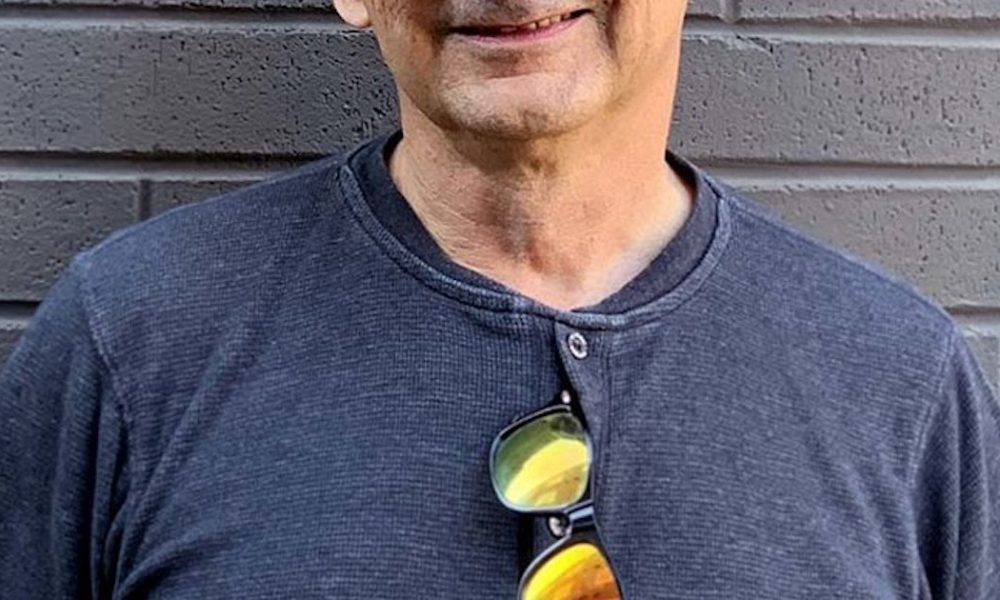 Bill Lioio is a private investigator from Springfield. Lioio was a former Eugene Police officer, and now investigates criminal cases and miscellaneous civil cases. ALIYA HALL/ THE CRESWELL CHRONICLE
Bill Lioio is a private investigator from Springfield. Lioio was a former Eugene Police officer, and now investigates criminal cases and miscellaneous civil cases. ALIYA HALL/ THE CRESWELL CHRONICLE
SPRINGFIELD – For the Oregon Association of Licensed Investigators (OALI) meeting happening on Nov. 2, Springfield P.I. Bill Lioio has been asked to give a talk; the title of his presentation: ”The Skeptical, Humble Investigator.”
”Skepticism is important,” he said. ”You need to know you weren’t there and you’re relying on what the person is telling you.”
A former officer for the Eugene Police from 1973 to ’77, Lioio has worked as a private investigator in the area since the mid-’80s. He is one of 208 investigators in the state registered with OALI.
Although he has experience working for juvenile court, most of his focus now is on criminal defense cases and miscellaneous civil cases. Over the years, he has helped locate people who have an inheritance and has been involved in investigating wrongful death cases.
”I don’t try to import motives to people; I can’t read minds,” he said. ”So I don’t understand why people do certain things, but I can suspect.”
Lioio added that his background as a police officer has been helpful in his private investigations work – especially in recognizing the quality, or lack thereof, of police reports. He said that often the reports are low-quality, which speaks to the quality of the training officers receive.
”From a defense perspective, it’s not bad because the more holes in the police report, the more holes you can poke in their case,” he said, adding that as an investigator he sees this as a potential benefit, but as a taxpayer, he sees it another way.
Generally, Lioio is called in by attorneys if there’s a case they want to involve him in. There will be an initial meeting, where he finds out what the case is about, and then they establish a plan for what they want to do. They’ll work together to evaluate the strength of the State’s case, and look for the problems and weaknesses. They’ll go through the charging documents, which Lioio said commonly ”overcharge” the client, and that’s where most plea deals comes from.
”Sometimes it’s a ‘didindoit,’ where the person says they didn’t do it, and that’s a different angle,” he said. ”The client will tell us who we need to talk to to show it wasn’t them, and I track them down. Sometimes it helps, sometimes not.”
He added that frequently the contact information given on the police reports will be outdated by the time it gets to him, which makes tracking people down more of a challenge. He said that he has a resource that will help with that, or occasionally someone involved in the case will tell him where the other sources are.
One thing he particularly appreciates about the attorneys he works with is that they aren’t afraid to go to trial; however, he noted that the court system isn’t built on everyone taking their cases to trial, due to the volume of cases.
”The prejudice of the system is to plead them out and get them out of the stack,” he said.
The court system is an imperfect one, Lioio said, and it can be easy for people involved to get into ruts and become more jaded over time.
”Working in the court system, you see a steady stream of people not having their best day – a litany of tragedies and grimness. Even though we like to say it doesn’t affect us, it does. It grinds slowly away on everyone who works in the system. If you’ve been doing it for as long as I have, some of that abrasion is getting down to the bone. A lot of times it’s not as fun as it used to be.”
He added that depending on the circumstances of a case or court experience, it can beg the question: Why keep doing this? Then an interesting and challenging case will come up, and it will suck him back in. By next summer, he wants to stop being a full-time investigator and only focus on those cases that interest him.
”I have a hard time saying no to people I’ve worked with for years,” he said. ”I can tell I’m getting overloaded, but then I’m needed and it’s hard to turn down.”
Lioio can work up to 13 or 14 cases at one time. He added that there was a shortage of investigators in recent years, but now more people are joining the field.
When Lioio first started investigating in the ’80s, he compared it to the Wild West. There was no licensing process and if someone wanted to become an investigator, they would just start looking for work. Now, to get a license, a person must meet the requirements, obtain 1,500 hours of experience as an apprentice, submit an application that includes around $600 in fees and take the exam. After receiving their license, the investigator will need 32 hours of continuing education, according to Private Investigator EDU.
For Lioio, after he left the police force, he bounced around with different jobs. He began working for an ”ethically challenged” PI, and found it harder to get paid. After that, he started process serving with someone who rented a room out of his house. Again, he struggled to get paid and when his boss finally skipped town to California, Lioio took over the business. He continued process serving and skip tracing – locating people – and then decided he wanted to take those skill sets and go back to investigating.
With TV shows like ”Magnum P.I.,” ”The Rockford Files” and ”Veronica Mars,” there are multiple misconceptions the public has about what goes into being a private investigator.
”They believe that we can do magic,” he said, ”and that’s not one of my talents.”
He noted that some of the things those fictional investigators have done, particularly in the older shows, are now illegal. For example, investigators can’t pretend to be someone else to get information. Lioio said that in the past, he would get a clipboard and stand outside a house he was targeting and ask the residents to fill out a survey; in it, he would bury the questions that he wanted to know the answers to.
”You can’t do that anymore,” he said. ”It’s gotten harder to get the information you used to get and I have to tell people, ‘I can’t do that because it’s illegal.’”
Some of the other challenges he faces are Measure 11 cases – which require mandatory minimum sentencing. He said that he has seen clients with ”very triable cases” take a plea deal because they don’t want to take the risk of going to trial, being convicted and sentenced according to Measure 11 guidelines.
”In many of those cases, I’ve believed that person wasn’t guilty for what they were being accused of but just felt compelled to take the deal,” he said.
Lioio said he prefers complex cases where he thinks the person is innocent, but it’s going to be difficult and intellectually challenging for him. He said he enjoys getting to dissect the prosecution’s case and pull apart what the police did or didn’t do. He said the most rewarding cases are when he gets a Not Guilty verdict on someone who wasn’t guilty, or when he can sweep away some charges that were ”grossly overcharged on the flimsiest of technicalities.”
As a defense investigator, that doesn’t mean that all of his clients are innocent, but Lioio said that he has a job to do – the same way the prosecution and police have theirs.
”We have a job to do. It is to defend the constitutional rights of any accused, whether they did it or not, and hold the state to its requirement to prove the allegations,” he explained. ”Some people beat the charges even though they did it, and I don’t think that’s good, but I don’t have a problem that I did my job, and perhaps if the police did their job better than this guy wouldn’t have walked.”








